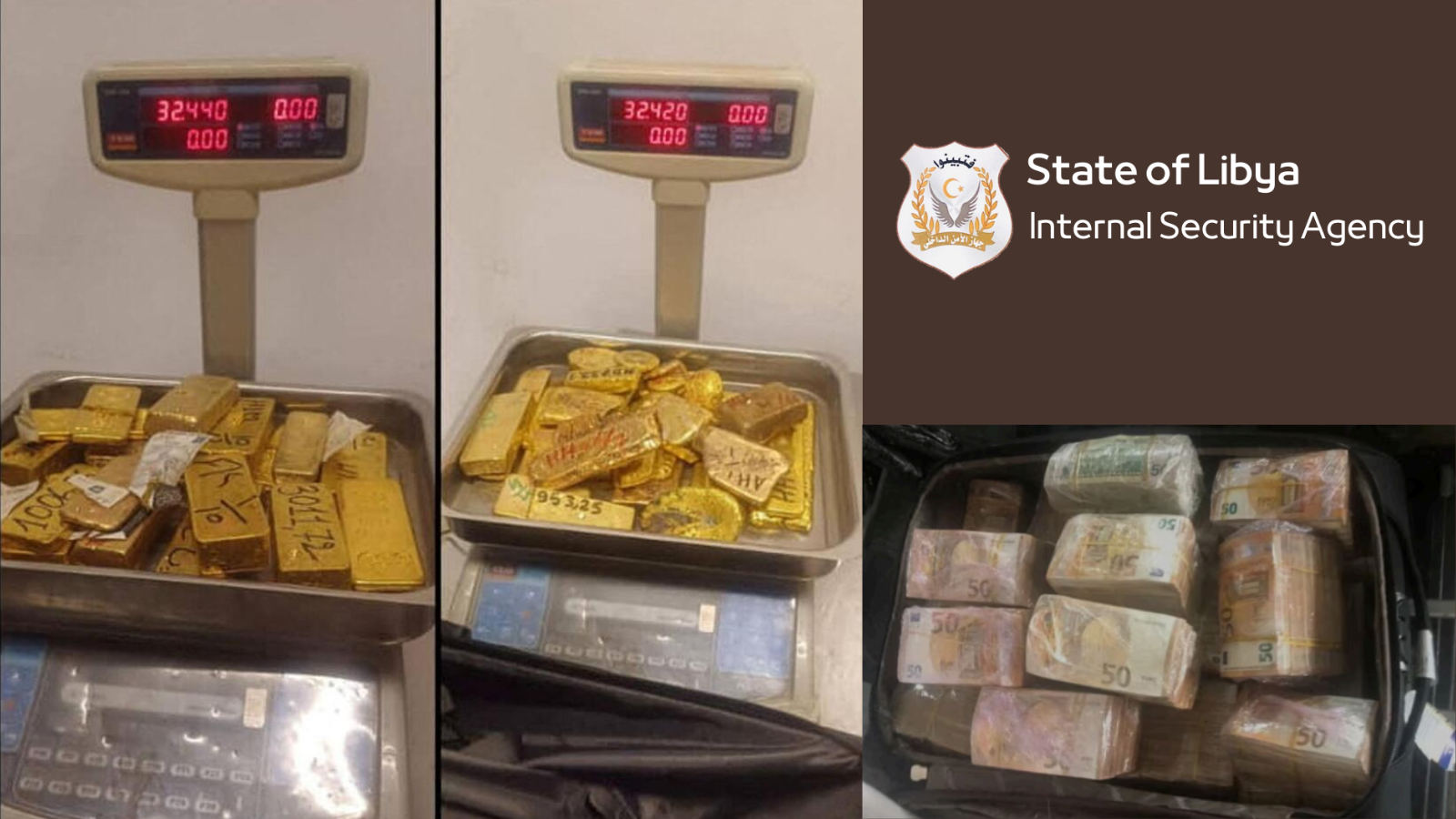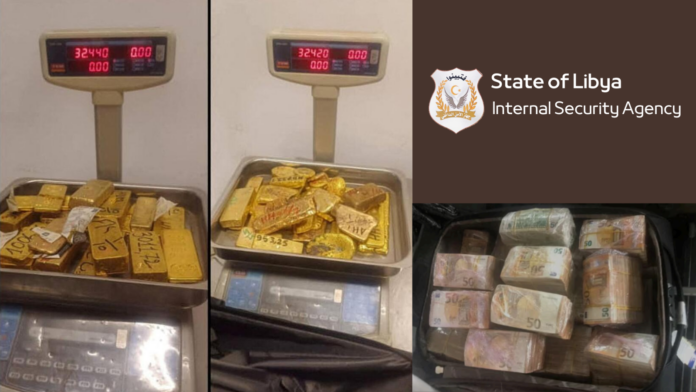According to Reuters, Libya’s Internal Security Agency successfully thwarted an attempt to smuggle 100 kg of gold and 1.5 million euros (approximately 4.4 billion VND) at Misrata International Airport during a security check on an international flight in September 2024.
As posted on the official Facebook page of the agency, the gold was concealed in three suitcases, while the cash was hidden in a separate piece of luggage. The incident was uncovered during a routine security check of baggage on a flight departing to Turkey.

The authorities also released images depicting the seized evidence, including gold bars and stacks of euro bills, carefully wrapped and packed inside suitcases. They confirmed that individuals associated with the luggage containing the contraband had been apprehended for further investigation.
In the same year, Libya’s authorities also ordered the arrest of the country’s Customs General Manager and other officials for their involvement in a separate attempt to smuggle nearly 26 kg of gold.
According to the World Gold Council, Libya holds the second-largest gold reserves in Africa and the third-largest in the world, with a total net reserve of 147 tons as of 2023. Despite its vast reserves, the country struggles with production and instead serves as a trading hub and transit point for gold bar smuggling to Gulf countries and Turkey. This has made smuggling attempts a frequent occurrence, highlighting the existing loopholes in the country’s gold asset management and security.
Misrata, a significant port city located approximately 125 miles east of the capital, Tripoli, has seen an increase in smuggling activities due to the ongoing instability in the country. In addition to Misrata, cities like Zliten and Benghazi, with their airports and seaports, play a crucial role as entry and exit points for illicit goods in and out of Libya.



![[Photo Essay]: Experts, Managers, and Businesses Unite to Forge a Path Towards Sustainable Green Industry](https://xe.today/wp-content/uploads/2025/07/z678592918-218x150.jpg)












